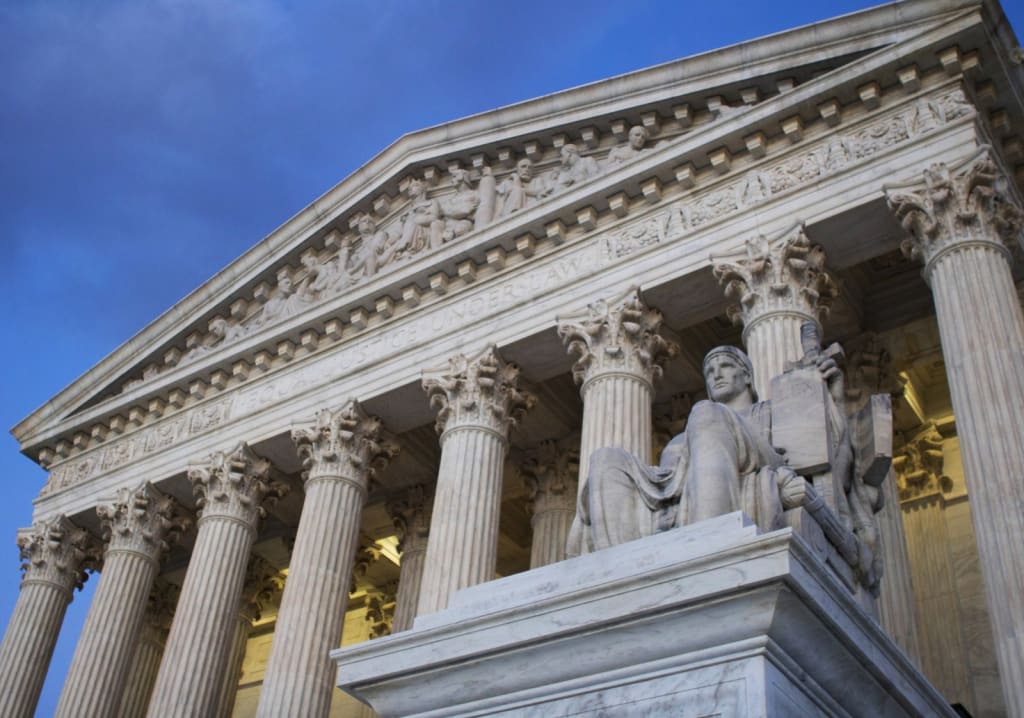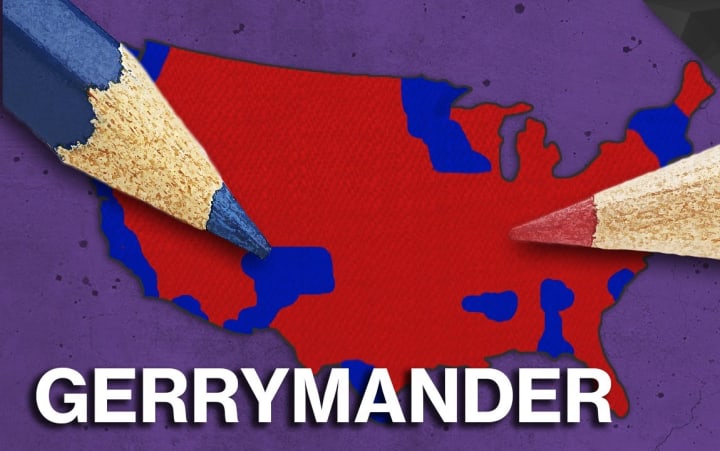What Is Gerrymandering?
What is gerrymandering, and why do so many people claim it's destroying America?

Gerrymandering.
For many people, no word is as synonymous with "legal election rigging" as the word "gerrymander," or its present tense form, "gerrymandering." Even saying that word in political discussions can get some people up in arms.
Though it's becoming increasingly important as we look at the outcomes of political elections throughout the country, many people don't know what gerrymandering is. But, what is gerrymandering? Why is it even called that?
Here's the truth behind what is gerrymandering, why it's done, and why it may see an end within our lifetimes.
What Is Gerrymandering?

In US elections, politicians are voted in by the districts they're in. This is important because major elections also will take district representative votes in the electoral college. If the majority of voters in one section vote for one party, that entire district will be counted as a vote for that party.
Every couple of years, political groups are given the option to redraw districts. According to the US Constitution, districts are supposed to be drawn fairly - and simply readjusted to fit population stuff. Officially, it's called getting an area "redistricted."
However, in sketchy elections, political parties may choose to draw district lines in their favor rather than a fair, bipartisan manner. This can allow politicians that aren't really popular to get into power. Such is the move of a political gerrymander.
Gerrymandering has been an issue since the dawn of our country. In fact, the word "Gerrymander" came about from an article in The Boston Gazette in 1812 to explain how the-governor Elbridge Gerry got his office and signed legislature that benefit his party. (The name is a portmanteau of Gerry's last name and the word "salamander.")
What Is Gerrymandering Good For?

Gerrymandering is good for giving people fair representation in the US government - assuming that it's done in a nonpartisan way. However, most gerrymandering that's being done in the US isn't nonpartisan or bipartisan.
It's straight up partisan - as in, it's partial to one party over the other. In some cases, gerrymandering has also been used as a way to prevent minorities from having a say in local politics.
For the most part, the gerrymandering we're seeing isn't good for the US. It mutes voices, makes votes count less, and puts power into the hands of politicians who might not have the country's best interests in heart. Many people have even said that gerrymandering has disuaded them from voting, simply because they don't feel their voices will be heard.
Is Gerrymandering Illegal?

One would think so, but technically, it's not.
American politicians are allowed to redraw districts as they see fit. Gerrymandering is technically legal, as it's technically just redrawing political lines.
That being said, gerrymandering did reach the Supreme Court in the case of Davis Vs. Bandemer. The Supreme Court found partisan gerrymandering to be unconstitutional. It should be a cut-and-dry case, but it's not. Several other cases showed split courts and no easy answers.
The problem with this is that no one seems to be able to figure out how to determine whether gerrymandering is partisan or not beyond a shadow of a doubt. So, while we all know what is gerrymandering used for, we can't figure out how to point it out without it being up for debate.
Realistically, there's no "perfect represenation" map possible in the United States. Every district will have partisan leanings, simply because that's the way people are. We tend to live near others with similar beliefs, which is why some voting districts are way more "red" or "blue" than others.
This has led to a number of cases that have been seen by the Supreme Court - but as of today, the Supreme Court has yet to say that a single gerrymander attempt is unconstitutional.
That being said, there's at least one program which may show whether there's a case of extreme gerrymandering in the mix. So, perhaps mathematicians are going to be the future of our ability to maintain fair elections. It's hard to say, considering the political climate.
What Is Gerrymandering Doing To Our Country?

Well, the most obvious thing that it's doing is putting politicians in office. Trump's rise to the White House came as a result of both gerrymandering and the electoral college. He lost the popular vote. Similar results have been seen in elections for congressmen, mayors, and even governors.
Many people are also beginning to get sick of seeing their votes thrown out due to partisan politics. Because of what gerrymandering does to the voting process, many voters in heavily gerrymandered districts are growing resentful of their neighbors.
The bottom line is that gerrymander redistricting is causing strain in our country, and there's absolutely no reason why it should be this way. That's why many political groups are starting to push for an end to it - or, at least an end to the gerrymandering done by political parties.
About the Creator
Cato Conroy
Cato Conroy is a Manhattan-based writer who yearns for a better world. He loves to write about politics, news reports, and interesting innovations that will impact the way we live.






Comments
There are no comments for this story
Be the first to respond and start the conversation.